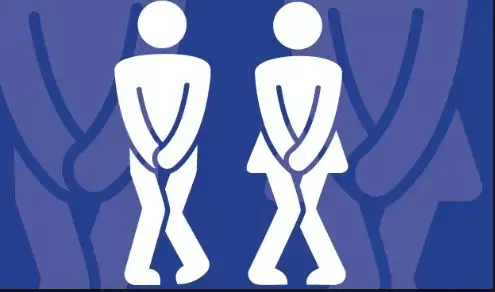- Home
- Medical news & Guidelines
- Anesthesiology
- Cardiology and CTVS
- Critical Care
- Dentistry
- Dermatology
- Diabetes and Endocrinology
- ENT
- Gastroenterology
- Medicine
- Nephrology
- Neurology
- Obstretics-Gynaecology
- Oncology
- Ophthalmology
- Orthopaedics
- Pediatrics-Neonatology
- Psychiatry
- Pulmonology
- Radiology
- Surgery
- Urology
- Laboratory Medicine
- Diet
- Nursing
- Paramedical
- Physiotherapy
- Health news
- Fact Check
- Bone Health Fact Check
- Brain Health Fact Check
- Cancer Related Fact Check
- Child Care Fact Check
- Dental and oral health fact check
- Diabetes and metabolic health fact check
- Diet and Nutrition Fact Check
- Eye and ENT Care Fact Check
- Fitness fact check
- Gut health fact check
- Heart health fact check
- Kidney health fact check
- Medical education fact check
- Men's health fact check
- Respiratory fact check
- Skin and hair care fact check
- Vaccine and Immunization fact check
- Women's health fact check
- AYUSH
- State News
- Andaman and Nicobar Islands
- Andhra Pradesh
- Arunachal Pradesh
- Assam
- Bihar
- Chandigarh
- Chattisgarh
- Dadra and Nagar Haveli
- Daman and Diu
- Delhi
- Goa
- Gujarat
- Haryana
- Himachal Pradesh
- Jammu & Kashmir
- Jharkhand
- Karnataka
- Kerala
- Ladakh
- Lakshadweep
- Madhya Pradesh
- Maharashtra
- Manipur
- Meghalaya
- Mizoram
- Nagaland
- Odisha
- Puducherry
- Punjab
- Rajasthan
- Sikkim
- Tamil Nadu
- Telangana
- Tripura
- Uttar Pradesh
- Uttrakhand
- West Bengal
- Medical Education
- Industry
Percutaneous tibial nerve stimulations effective in refractory OAB: Study

The ideal treatment for overactive bladder is still elusive. In those where medication fails to improve symptoms options include invasive treatments such as botulinum toxin-A, sacral neural stimulation or posterior tibial nerve stimulation. Scientific professional society guidelines advise percutaneous posterior tibial nerve stimulation as a third line treatment option only after multi-disciplinary team review as well as failure of both conservative and pharmacological management.
In a recent study, researchers have pointed out that a shortened 6-week treatment protocol with Percutaneous tibial nerve stimulation (PTNS) appears to be successful and more effective than sham in the treatment of refractory OAB.
"PTNS therapy is safe and effective in treating OAB symptoms by 52% success rate following a shortened 6-week protocol. The duration of treatment with PTNS can be halved compared to the conventional 12 weeks, which would make it more acceptable and cost effective for patients."wrote the team in the results published in European Urology Open Science.
The study was a prospective randomized controlled trial comparing the efficacy of percutaneous tibial nerve stimulation versus sham for a shortened 6 week protocol of treatment in management of refractory OAB in non-neurogenic adult patients.
For the study design, a total of 50 adults with refractory overactive bladder symptoms were randomized 1:1 to 6 weeks of treatment with weekly percutaneous tibial nerve stimulation or sham therapy. Overactive bladder symptom scores as well as 3-day voiding diaries were completed at baseline and at 7th week, 3rd and 6th month.
Data analysis revealed the following facts.
- The 7th week, 3 rd and 6 th month symptom scores assessment for overall bladder symptoms demonstrated that percutaneous tibial nerve stimulation patients achieved statistically significant improvement in bladder symptoms with 52% reporting moderately improved responses compared to non-response of sham patients from baseline (p = 0.001).
- Voiding diary parameters after 6 weeks of therapy showed that PTNS patients had statistically significant improvements in frequency, voided volume and urgency urinary incontinence episodes compared to sham.
- No serious device related adverse events or malfunctions were reported.
For full article follow the link: https://doi.org/10.1016/S2666-1683(20)33125-6
Primary source: European Urology Open Science
Dr Satabdi Saha (BDS, MDS) is a practicing pediatric dentist with a keen interest in new medical researches and updates. She has completed her BDS from North Bengal Dental College ,Darjeeling. Then she went on to secure an ALL INDIA NEET PG rank and completed her MDS from the first dental college in the country – Dr R. Ahmed Dental College and Hospital. She is currently attached to The Marwari Relief Society Hospital as a consultant along with private practice of 2 years. She has published scientific papers in national and international journals. Her strong passion of sharing knowledge with the medical fraternity has motivated her to be a part of Medical Dialogues.
Dr Kamal Kant Kohli-MBBS, DTCD- a chest specialist with more than 30 years of practice and a flair for writing clinical articles, Dr Kamal Kant Kohli joined Medical Dialogues as a Chief Editor of Medical News. Besides writing articles, as an editor, he proofreads and verifies all the medical content published on Medical Dialogues including those coming from journals, studies,medical conferences,guidelines etc. Email: drkohli@medicaldialogues.in. Contact no. 011-43720751


